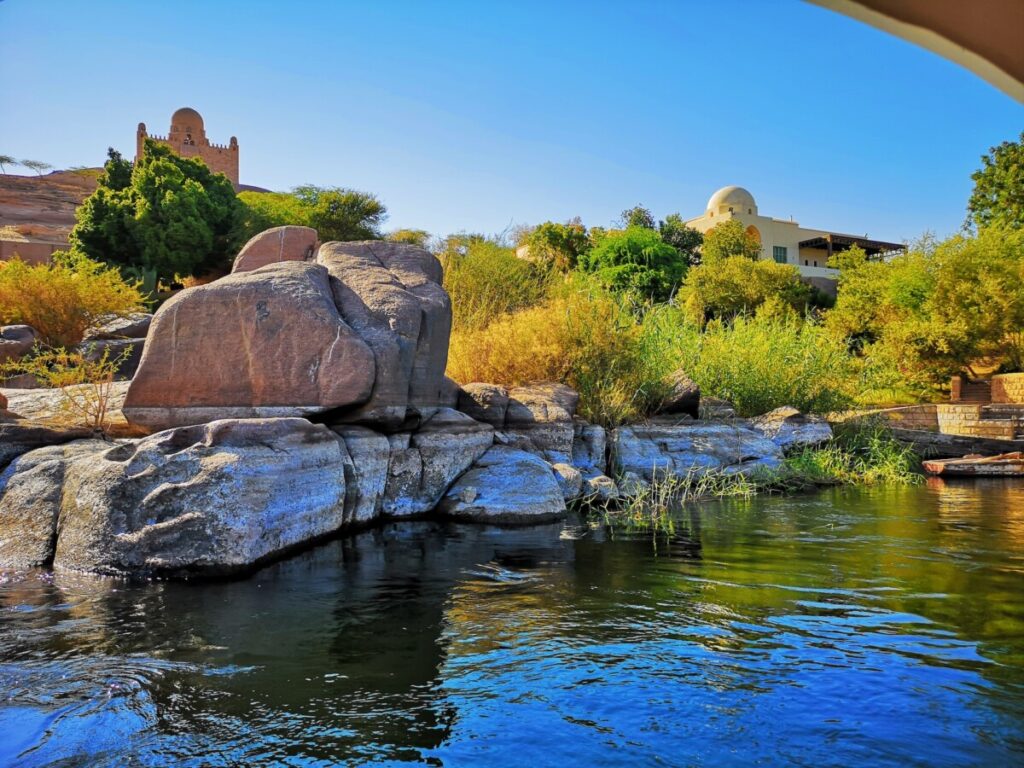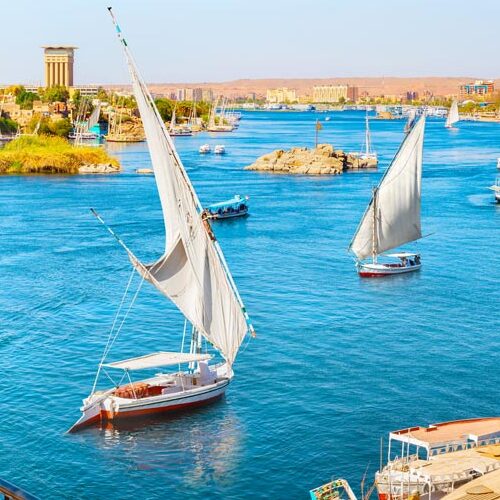No other nation in the world says ‘Welcome’ as often as the Egyptians, and every time, they mean it. While the ancient civilization of Egypt continues to amaze, contemporary Egyptians are equally remarkable.
Kitchener’s Island
Kitchener’s Island
Kitchener’s Island, also known as El Nabatat Island or the Botanical Island, is a lush and serene oasis in the River Nile, near Aswan, Egypt. Rich in history and botanical beauty, it offers a tranquil escape from the bustling city life.

History and Transformation into a Botanical Haven:
- Gift to Lord Horatio Kitchener: In the 1890s, the island was given to Lord Horatio Kitchener for his services in the Sudanese campaigns. Kitchener, known for his passion for gardening and botany, transformed the island into a botanical paradise.
- Development of Botanical Garden: Kitchener meticulously developed the island into a botanical garden, introducing a diverse range of exotic plants and trees from around the world. These species thrived in the favorable climate of Aswan.
- Completion and Expansion: By 1899, the garden was established, and in 1928, it saw further expansion with the introduction of more plants from equatorial regions. The objective was to test their adaptability for potential use in timber and agriculture.
A Rich Botanical Collection:
- Diverse Flora: The island is home to various species of palm trees, including the Date Palm and Sycamore Fig, alongside a collection of rare and exotic plants and flowers from different parts of the world.
- Habitat for Birds: The island’s rich vegetation provides a perfect habitat for a variety of bird species, making it a delightful spot for bird watching.
Visitor Experience:
- Tranquil Environment: The island’s peaceful ambiance, shaded pathways lined with vibrant flora, offers visitors a relaxing experience amidst natural beauty.
- Access and Amenities: Accessible by boat, the island invites tourists to stroll through its well-maintained walkways. A cafeteria at the southern end caters to the refreshment needs of visitors.
- Exclusion of Research Station: While the island houses a biological research station focusing on the cultivation of timber trees and exotic plants, this section is not open to tourists.
Current Ownership and Conservation:
- Government Ownership: Kitchener’s Island is under the ownership of the Egyptian government, ensuring its preservation and maintenance.
- Conservation Efforts: The island serves as a living laboratory for botanical research and conservation, contributing to the study and preservation of diverse plant species.
In summary, Kitchener’s Island is not just a testament to Lord Kitchener’s botanical legacy but also a serene and beautiful destination for nature lovers and tourists visiting Aswan. Its rich collection of flora and fauna, combined with its historical significance, makes it a unique and must-visit location on the Nile.
Created On March 18, 2020
Updated On Aug , 2024


